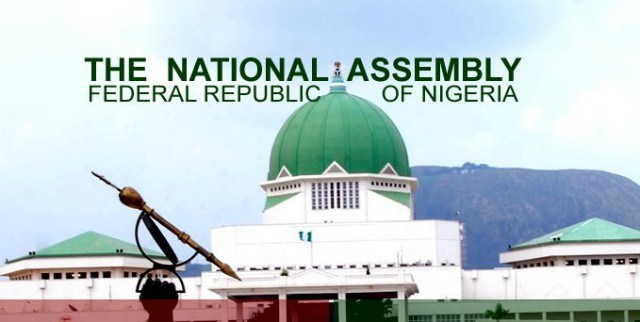– as senators consider Buhari’s concerns
The revised amendment to the Electoral Amendment Bill on Wednesday passed a second reading at the Senate.
While deliberating on the bill, the lawmakers put into consideration reasons President Muhammdu Buhari gave for rejecting the Bill.
Buhari rejected the bill for the third time on September 3 due to “some drafting issues” that remain unaddressed by prior revisions.
“Mr President invites the Senate and House of Representatives to address these issues as quickly as possible so that he may grant assent to the Electoral Amendment Bill,” Ita Enang, a presidential aide said in a statement.
“A few of the outstanding issues are; There is a cross referencing error in the proposed amendment to section 18 of the bill. The appropriate amendment is to substitute the existing sub-section (2) with the proposed subsection (1A), while the proposed sub-section (1B) is the new sub-section (2A)’
“The proposed amendment to include a new Section 87 (14) which stipulates a specific period within which political party primaries are required to be held has the unintended consequence of leaving INEC with only 9 days to collate and compile lists of candidates and political parties as well manage the primaries of 91 political parties for the various elections.
“This is because the electoral amendment bill does not amend sections 31, 34 and 85 which stipulates times for the submission of lists of candidates, publication of lists of candidates and notice of convention, congresses for nominating candidates for elections.”
His refusal to assent the bill compelled the National Assembly Joint Committee on the Independent National Electoral Commission (INEC) to reconvene and deliberate on the bill for the fourth time.
The Senate on Wednesday passed it after Suleiman Nazif, chairman of the Senate Committee on INEC, presented a report.
Denying allegations that the lawmakers took out the section backing the use of card reader during the election, Nazif, stated that the issue of card reader “has always been part of the amendment process.”
“Failure of card reader – section 49(3): where a smart card reader fails to function in any unit, and a fresh card reader is not deployed, election in that unit shall be cancelled and another election shall be scheduled within 24 hours,” he explained.
While stating that all the concerns of the president had been addressed, the lawmaker further explained that spending limits of candidates for various offices were addressed as well as when the Independent National Electoral Commission (INEC) would conduct a fresh poll if a card reader fails, among others.
He announced that the spending limits for a presidential candidate is N5 billion while that of the governor is N1 billion.
“Section 87(12): Where a primary election is conducted and duly attended and certified by the commission in compliance with this Act, and the result is subsequently altered by a political party, the commission shall have powers to overrule the alteration made by the political parties and oppose such primaries.
“Section 87(14): The days of primaries shall not be earlier than 150 days and not later than 120 days before the day of the election into office.
“Election expenses – Section 91 (1): election expenses shall not exceed the sum stipulated in sub-section 2-7.
Section 91(2) – N5 billion for presidential election.
Section 91(3) – N1 billion for governorship election
Section 91(4) – N100 million for senatorial election/house of representatives
Section 91(5) – N30 million for state house of assembly/
Section 91(6) – N30 million for chairmanship/area council
Section 92(7) – N 5 million for councillorship
“Section 91(9) – No individual of other entity shall donate to a candidate, more than 10 million.
“Section 91(10) – A candidate who knowingly act in contravention of this section, commits an offence and is liable on conviction to a fine of 1 % of the amount permitted at the limit of campaign expenditure under this Act or imprisonment of a term not exceeding 12 months,” he said.
He further explained that the proposed amendment includes a new section 87(14) which stipulates a specific period within which political party primaries are required to be held has the unintended prospect of leaving INEC with only nine days to collate and compile lists of candidates and political parties as well as manage the primaries of 91 political parties for various elections.
“This is because the electoral amendment bill does not amend section 31, 34 and 85 which stipulates time for submission time for submission of names of candidates, publication of names of candidates and notice of convention, congress for nominating candidates for election.
“Qualifying language should also be considered to the provision of section 36(3) since an unintending effect of the current drafting may be to unduly increase the cost of administrative burden of conducting election in the event that any candidate no matter how inconsequential to the overall electoral process, passes away during the election.”
In his contribution, Kabir Marafa (APC, Zamfara Central) said putting a spending limit to candidates was not realistic.
“We can pass a law that can’t pass the litmus test. The law says no individual can donate more than N10 million to a candidate, as long as someone makes his money legitimately why will he have a limit to his donation?” he said.
Victor Umeh (APGA, Anambra Central) suggested that instead of having a law restricting spending limits, there should be legislation to tackle vote-buying.
“I suggest it should be expunged. We should strengthen the law against vote-buying, it will be better,” he said.
On his part, Dino Melaye (PDP, Kogi West) described the provision which gives INEC power to upturn the choice of party’s candidate as “a recipe for disaster.”
The Senate passed the bill after it was put to a voice vote by Senate President Bukola Saraki.
Saraki asked the committee to take note of the observations raised by the lawmakers and directed it to report back on Tuesday.
Premium Times





